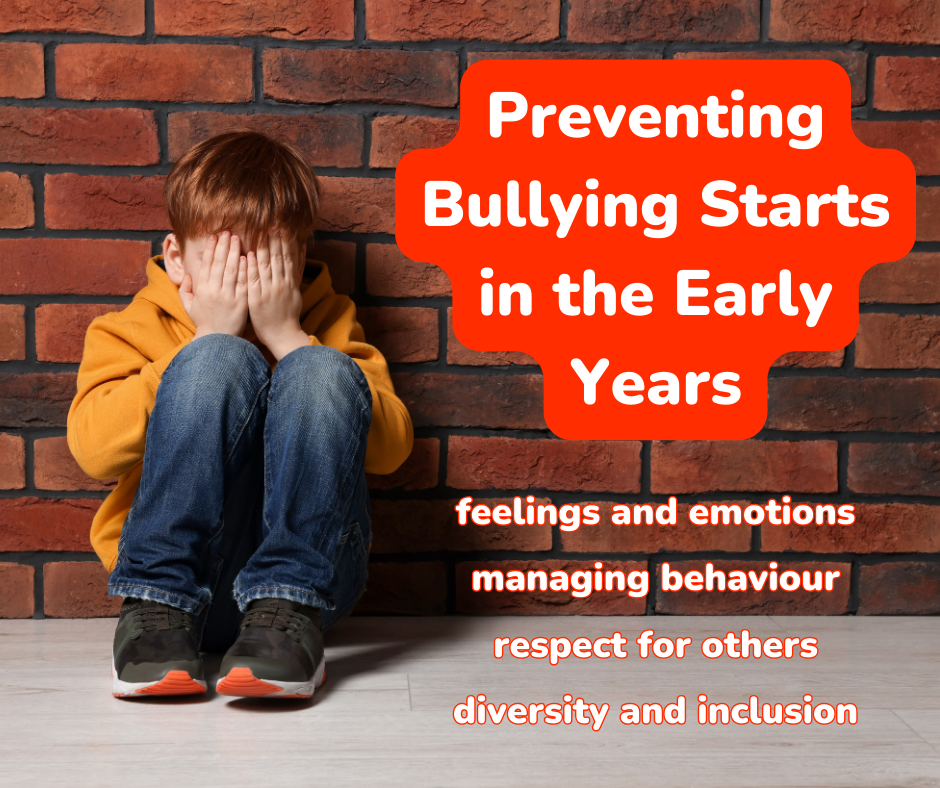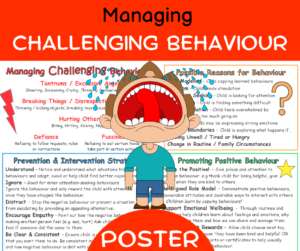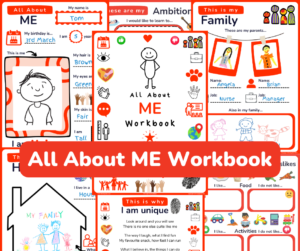This Anti-Bullying Week we are focussing on the importance of learning about feelings and emotions and what we can do as childcare providers.
The early years are a critical time for children to learn about feelings and emotions. This is because they are starting to develop their social skills and relationships with others. By helping children to understand their own emotions and the emotions of others, we can help them to develop empathy and respect. Through empathy education, we can help to prevent bullying and create a more positive and inclusive environment for everyone.
WHY is it important to teach children about feelings and emotions from such a young age?
First, it helps them to understand their own emotions and why they feel the way they do. This can help them to manage their emotions in a healthy way and to communicate their feelings effectively to others.
Second, teaching children about feelings and emotions helps them to develop empathy. Empathy is the ability to understand and share the feelings of another person. It is an essential skill for building and maintaining relationships.
Third, teaching children about feelings and emotions helps them to develop respect for others. When children understand that others have feelings too, they are more likely to be respectful of their needs and feelings. This can help to prevent bullying and create a more positive and inclusive environment for everyone.
HOW can we teach young children about feelings and emotions? Here are a few ideas:
- Label emotions: When children are feeling happy, sad, angry, or scared, help them to label their emotions. This will help them to learn the vocabulary of emotions and to start to understand their own emotional states.
- Talk about emotions: Talk to children about their emotions and the emotions of others. Ask them how they are feeling and why. Share your own feelings with them. This helps children to feel comfortable talking about emotions and to learn how to manage their emotions in a healthy way.
- Read books about emotions: There are many children’s books that deal with emotions. Reading these books with children is a great way to talk about emotions and to help them to understand how others might be feeling.
- Play games about emotions: There are a number of games and activities that can help children to learn about emotions. For example, you could play a game where you match different facial expressions to different emotions.
In addition, we can promote respectful behaviour and encourage children to be kind and compassionate towards others by:
- Creating a safe and supportive environment: Children need to feel safe and supported in order to thrive. Create a classroom or home environment where children feel comfortable talking about their feelings and where they know that they will be respected.
- Setting clear expectations: Have clear expectations for behaviour and let children know that bullying will not be tolerated.
- Teach children how to resolve conflict peacefully: Teach children how to resolve conflict peacefully and to compromise.
- Model kindness and respect: Model kind and respectful behaviour for children. Show them how to treat others with respect, even when they disagree with them.
- Talk to children about bullying: Talk to children about bullying and what to do if they are being bullied or if they see someone else being bullied.
Coordinated by the Anti-Bullying Alliance, Anti-bullying week is an annual event which aims to raise awareness of the negative effects of bullying and highlight ways of preventing and responding to it.
👉🏼Find more information, free resources and ideas to share with parents here







